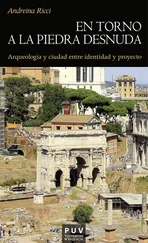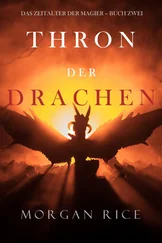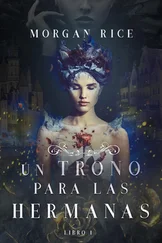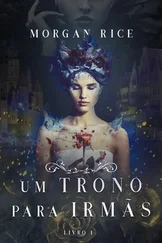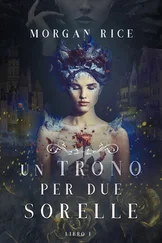I must avoid, then, coming to despair and madness. I must try to forget anatomy. Forget it utterly. I must whisper over it words of oblivion. I must forget the starling. I must forget Fabricius and the drowned pauper. I must forget the interior of the human temple altogether. Instead, I will do decorative things. I will buy more furniture and pictures and drapes. I will paint pictures, even, for like my father, I am a good draughtsman and I am not afraid of trying my hand at oils. So this will be it: forgetfulness of the cavity, the cavern, the cave, the ghastly deep. My life will move in reverse order: I have endured the night; now, with my mind on superficial things, will come the morning. I am, after all, a citizen of a New Age.
Some minutes have passed while I have conversed with myself about my future. I replace the mask over my eyes and nose and listen. I can hear laughter – Celia's and the King's – a hopeful signal that they're rowing noisily together to heaven.
I open the door and find, to my intense relief, that the bed curtains have been drawn. I duck down nevertheless and crawl on my hands and knees to the door, which squeaks loudly when I open it, but then closes on me with hardly a sound.
A while later, I am in the park of Sir Joshua 's house. Some hours have passed, in which I have jigged and polka'd and drunk and flirted and generally flung myself about in such an untrammelled way that I am now exceedingly dizzy. It is cool outside, because the sun has gone down and I am tottering towards a little shadowy copse in which, I have convinced myself, Pearce is hiding.
I stop to piss. I take down my breeches and see the ribbon on my cock. The ribbon slides off and falls to the ground and I moan gently to myself as I piss onto it.
I pull up my breeches. Ahead of me, just at the edge of the wood, someone is moving. It must be Pearce, to whom I will now confess that I am abandoning medicine altogether. "I cannot go on," I will say.
But it isn't Pearce. For now, the person has put on – I would recognise this confection anywhere, even in the coming crepuscule – the three-masted barque! Even to tease me, Pearce would be unable to bring himself to place such a thing on his head.
I hear laughter. It is high and cackling. And there, suddenly, in front of me, laughing up into my face, is the plump village girl I kissed that morning on my way to my wedding.
"Bridegroom," she giggles, "Sir Master Bridegroom!"
I reach up a hand to my face and realise with terror that my mask is no longer there.
"Come inny, Bridegroom!" cackles the girl. "Come to Bridey!"
She is drunker than I am. The hat falls over her eyes and she hiccups. I reach up swiftly under her skirt and cup and squeeze the flesh of her buttocks in my hands and in this way propel her forwards into the woods. As I pitch her down and feel myself stagger and fall onto her, it's as if the night descends on us like an executioner's blade, leaving our severed bodies to wriggle in the darkness.
Chapter Three. My New Vocation
The most beautiful room at Bidnold (aside from the little circular space in the West Turret which, for the time being, I kept empty, my imagination not yet having discovered the most satisfactory way to reveal its perfection) was the Withdrawing Room. As one who had spent the greatest part of his life in meagre apartments, I could not prevent a foolish grin from breaking out over my face every time I remembered that I was now the owner of a room so designated. The title, "Withdrawing Room", entranced me. For it inevitably implies that one is living a busy and pleasurable life on its periphery, from which one occasionally "withdraws" in order to sip a little brandy by its excellent fire, or to indulge in sweet and silly talk with the likes of my handsome neighbour, Lady Bathurst, on its scarlet and gold sofas. Thus, with my usual excess of enthusiasm, I set about making certain that my life at Bidnold was full of diverting activity, from which I could "withdraw" from time to time.
I equipped myself with a Music Room (I had not, at that time, yet learned to play the oboe), a Billiard Room (I had not, then, ever held a billiard cue in my hands), a Card Room (I was already fond of Rummy and Bezique), a Studio (in which I would begin my new career as a painter), a Study (in case Pearce should visit me and find himself discomforted by the oriental brilliance of my Withdrawing Room), a Morning Room (facing east, where I would sit between nine and ten to do my household accounts) and of course a most sumptuous Dining Room (the abundance of its table such that one would need to "withdraw" a little after dinner to let the digestive system work in comfort and tranquillity).
My stipend from the King as Celia's husband was two thousand livres per annum – riches I could not, a year before, have dreamed of. This money enabled me to buy a great quantity of Chinese furniture for my Withdrawing Room, to hang the walls with ruched vermilion taffeta and Peking scrolls, to upholster my chairs in scarlet and fuchsia and gold and to lay upon the floor a carpet from Chengchow so elaborate in design it had been a thousand days upon the loom.
I was exceedingly pleased with these decorations. As I poured beer for my exhausted upholsterers, I congratulated myself that I had got the rampant tones of red, pink and gold so absolutely right that I must quickly hit upon some ingenious idea for ensuring that the guests, in whose company I would withdraw into this room, would not sully it with drabness. It came to me speedily: I would order to be made a dazzling collection of scarlet sashes, bilberry shawls, ruby slippers, pink bonnets and yellow plumes, with which to adorn my invitées , thus affording my eye considerable delight and my spirit a great deal of mirth.
Celia, as you will have understood by now, had no part in the designing of my house. Though it was thought that, when expedient, she would spend some time at Bidnold, the King preferred her to be nearer to him and had thus installed the new Lady Merivel in a pretty house at Kew, a short journey by water from Whitehall. It was gossiped, I learned from my Court friends, that on summer evenings, when his desire for my wife overcame his passion journalière for Barbara Castlemaine, he would skull himself alone and in disguise to Kew, thus putting himself grievously at risk from the vagabonds of the water. Unlike myself, so prone to cowardice with regard to my own mortality, the King appears to be a man without fear. I had become by this time, I feel obliged to admit to you, extremely fond of the King, and experienced some pain in the realisation that, now I had served his purpose and been rewarded with lands and a title, he could, if he chose, forget about me utterly. I thought with fondness of the smacking kisses he had once slapped on his Fool's lips, and earnestly hoped it would not be so.
Let me relate to you my first attempts at becoming an artist.
Thirty canvases, fourteen brushes, fifty-eight boxes of pigment and an easel were sent to me from Pelissier and Drew in London. My tailor made for me a floppy hat in the manner of the great Rembrandt, and a hessian smock, in which garment, I admit, I looked more like a swine feeder than a Renaissance Man.
The mixing of pigments was an activity to which I responded with great eagerness. If I have a visionary side, it is visions of colour and light that I see. Thus, I longed to dispense with drawing and dabble pure colour onto the virgin canvases. I was aware, however, than an artist must have a subject and the only subjects I could execute well with my charcoal were parts of the human anatomy – the very thing I has sworn to consign to oblivion, but found myself unable to forget.
My first picture, then, was of a man's thigh and buttocks. The background, I had decided, would be ochre, suggesting a pastoral scene, in which the severed half of my man was striding through a field of corn. (I made a rather feeble attempt at drawing some stooks in the distance and a few single ears of wheat close to.)
Читать дальше


